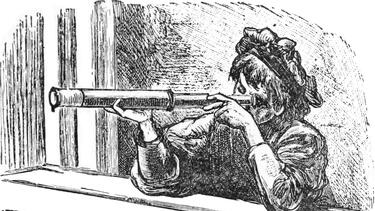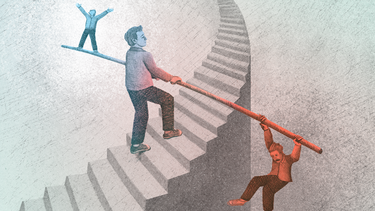Behavioral
Can Holiday Shopping Boycotts Make a Difference?
We asked Yale SOM’s Zoe Chance, an expert on consumer behavior and persuasion, what makes boycotts effective and how companies should respond.

Smarter Ways to Look Ahead: Research-Based Suggestions for a Better 2023
We asked faculty from the Yale School of Management to put a scholarly lens on improving our personal and professional lives in the coming year.

Building Trust with the Algorithms in Our Lives
Consumers are wary of the recommendations made by algorithms. But according to new research co-authored by Yale SOM’s Taly Reich, showing that an algorithm can learn—that it improves over time—helps to resolve this distrust.

How to Give Better Gifts
Do your loved ones want their presents to be expensive or thoughtful? Do they want to be surprised or to get items from their wish lists? We asked Professor Nathan Novemsky, a psychologist and expert in consumer behavior, to explain some of the common mistakes that gift-givers make.

When Counting Calories, Words Are More Valuable than Pictures
A new study co-authored by Yale SOM’s Gal Zauberman finds that apps that track calories with a photo are appealing, but manually logging your meals is actually more effective. The results offer a cautionary tale about giving consumers what they think they want, he says.

How Does Inflation Change Consumer Behavior?
Inflation has put consumers in an anxious, angry mood, even as the economic data shows confounding bright spots. We asked Yale SOM’s Ravi Dhar how the perception of rising prices affects buying behavior, and how companies can respond.

How Grammy Wins and Losses Shape Artists’ Creative Trajectories
Prof. Balázs Kovács and his co-authors found that Grammy winners tend to branch out in new directions afterward—but nominees who don’t win become more creatively cautious.

Do Homebuyers’ Expectations Align with Reality?
People’s predictions of long-term home price growth were wildly optimistic in the early 2000s but have become more cautious since the Great Recession, according to a study co-authored by Robert Shiller of Yale SOM.

What Sports Betting Teaches Us about Financial Markets
In a new paper, Tobias Moskowitz of Yale SOM finds that the sports betting market exhibits pricing patterns also seen in the stock market—suggesting that both may be subject to human irrationality.

Can Ambivalence Motivate Us to Act?
New research by Professor Taly Reich and two Yale SOM colleagues demonstrates the way in which ambivalence can help encourage action despite the prospect of failure.

To Shift Opinions in Online Conversations, Start by Building Trust
New research from Yale SOM’s Tauhid Zaman suggests that starting by establishing common ground makes it possible to make connections and even change some minds.
